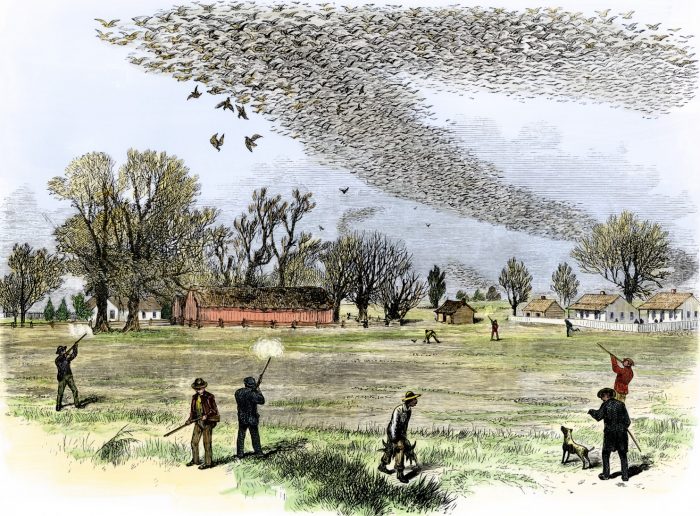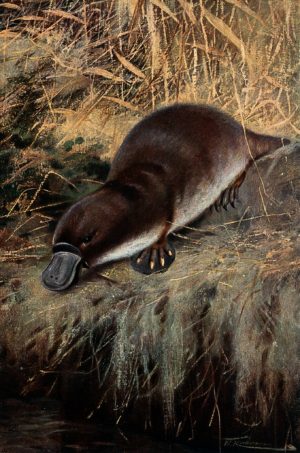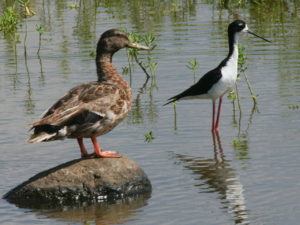Hunting A Major Threat
For the first time, hunting-induced declines in animal populations have been analysed. This new research discovered that hunting is a major threat to wildlife, particularly in the tropics.
 Image: By Smith Bennett (Illustrated Sporting and Dramatic News) [Public domain]
Image: By Smith Bennett (Illustrated Sporting and Dramatic News) [Public domain] A recent study has filled a gap in knowledge of the real threat of hunting. This systematic, large-scale estimate of the hunting-induced declines of animal numbers has shown that, particularly in tropical regions, hunting is a major threat to wildlife. The international team of scientists behind the research found that bird and mammal populations were reduced within 7 and 40 kilometres of hunters’ access points, such as roads and settlements.
The scientists synthesised 176 studies to quantify hunting-induced declines of mammal and bird populations across the tropics, in Central and South America, Africa and Asia. ‘There are several drivers of animal decline in tropical landscapes: habitat destruction, overhunting, fragmentation etcetera. While deforestation and habitat loss can be monitored using remote sensing, hunting can only be tracked on the ground. We wanted to find a systematic and consistent way to estimate the impact of hunting across the tropics. As a starting point, we used the hypothesis that humans gather resources in a circle around their village and in the proximity of roads. As such, hunting pressure is higher in the proximity of villages and other access points. From there the densities of species increase up to a distance where no effect of hunting is observed. We called this species depletion distances which we quantified in our analysis. This allowed us to map hunting-induced declines across the tropics for the first time,’ lead author Ana Benítez-López said.
The study combined evidence across many local studies, to provide an overarching picture of the magnitude of the impact across a large number of species. Within the impact zones near access points, mammal populations declined on average by 83% and bird populations by 58%. Benítez-López explains the difference in impact between birds and mammals: ‘Mammals are more sought after because they’re bigger and provide more food. They are worth a longer trip. The bigger the mammal, the further a hunter would walk to catch it.’ With increasing wild meat demand for rural and urban supply, hunters have harvested larger species almost to extinction in the proximity of the villages, so must travel further distances to hunt. For commercially interesting species such as elephants and gorillas, hunting distances are much larger because the returns are higher.
The study found that commercial hunting had a higher impact than hunting for family food. In addition, hunting pressure was higher in areas with better accessibility to major towns where wild meat could be traded. Overall, the impact of hunting was much larger than the scientists expected. They said: ‘Thanks to this study, we estimate that only 17% of the original mammal abundance and 42% of the birds remain in hunted areas.’
Another worrying factor discovered by the study is that there are no safe havens. Mammal populations have been reduced by hunting even within protected areas. ‘Strategies to sustainably manage wild meat hunting in both protected and unprotected tropical ecosystems are urgently needed to avoid further defaunation. This includes monitoring hunting activities by increasing anti-poaching patrols and controlling overexploitation via law enforcement.’





No comments yet.